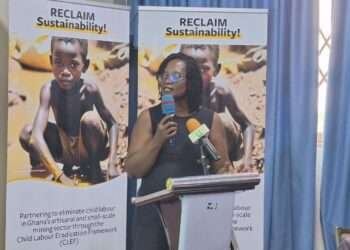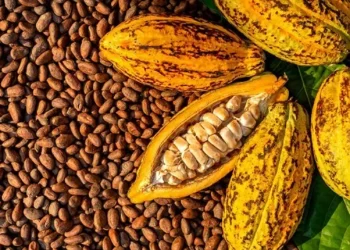Policy think-tank, IMANI Africa, has called for clarity on the terms of agreement between Ghana and the Barari DV Limited on Lithium mining in the country.
According to IMANI, it has been following with keen interest the intense debate generated by the decision of the government of Ghana to among other things, grant a lease to Australian mining startup, Atlantic Lithium and also authorize the country’s sovereign minerals fund, MIIF, to invest $32.9 million of Ghana’s gold income in Atlantic Lithium to help fund the project in exchange for 6% in the local asset and 3% of the parent company.
It revealed that the aforementioned transactions are connected and must be analyzed together at all times.
Commenting on the term of agreement, IMANI noted that as the debate gets broader and deeper, some citizens could find themselves lost in the weeds. As such, it explained that there is the need to recenter the discussion on the key issues that have been raised by civil society organizations like IMANI, the IEA, and ACEP.
Furthermore, IMANI reckoned that there is nothing in the way the contract has been drafted that will increase the odds of lithium refining happening in Ghana in a way that will boost value addition, quality jobs, public revenues and local businesses.
The current drafting, it noted, simply means that the company will only refine based on the “outcome” of a scoping study.
“Our position is that the common expectations of both the government and the company as to what conditions must exist before refining will be possible must be indicated in some form to enable tracking.
“Whether it is profitability level, raw lithium availability, electricity pricing and availability, tax waivers for complementary imports, or whatever may be required, the text should be clear so that civil society and others can monitor progress towards value addition, which everyone agrees is essential considering Ghana’s history with mining.”
IMANI Africa
Atlantic Lithium Equity Investment document
Moreover, IMANI stated that in the same light, “refining” should be clarified so that the public will know what end-products or intermediaries are in line with the country’s value addition strategy. It underscored that there are several stages in the refining process of lithium and that value is unfortunately not added uniformly at every stage.
“Refining spodumene concentrate (the planned product from the Ewoyaa mine) into lithium sulphate monohydrate will count as ‘refining’ but the contributions that will make to skills growth, public revenues, green jobs etc., are different from refining the concentrate into battery-grade lithium hydroxide. It is important that the expectations are set out clearly in the agreement so that we can all maintain vigilance.”
IMANI Africa
Justifying its stance, IMANI highlighted that a major aspect of the entire transaction is Ghana’s decision to buy, through MIIF, more stake in Atlantic Lithium, at a cost nearly twice the amount of money the company’s own backers initially invested in Ghana before getting their mining lease.
It elaborated that in a “Atlantic Lithium Equity Investment” document, MIIF made the emphatic claim that, “even before any disbursal, the value of MIIF’s equity investment is up 31% from the locked in price of US$0.26″, among other things. The analysis, IMANI emphasized, is wholly “erroneous”.
It contended that the highest price of the stock this year was on January 27th, when it sold for $0.417. MIIF, IMANI revealed, committed to buying at $0.26 and though it hasn’t paid for it or sold any shares, it has already declared a “gain” of 31% because for a short period of time, the stock price was $0.34.
Meanwhile, IMANI Africa expressed that as Parliament gets ready to deliberate on the agreement, government should expect CSOs to champion the cause of Ghanaians.
“There can be no compromise of the position that the agreement, as currently drafted, does not meet public expectations. The government will do well to listen.”
IMANI Africa
READ ALSO: Lands Minister Calls For Financial Backing To Accelerate Climate Change Efforts In Africa





















